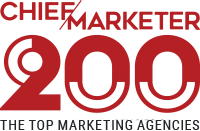Article
Experts Share Their Thoughts on Effective B2B Lead Generation

Today, B2B lead generation is key to growing your customer pool, but only when it’s done right. Knowing how to attract quality leads is vital in minimizing costs and ensuring optimal conversion.
So, what is the most important ingredient in effective B2B lead generation and why?
To answer this question, we listened to the views of top marketing experts while looking at three key factors, including technology, sales-marketing alignment, and branding/awareness.
Here are their views and thoughts:
Nader Ashway Principal-creative director, Moddern Marketing: “Sales-marketing alignment. Brands need to share compelling messages to capture their audience and generate leads. More importantly, marketing must align with sales to ensure optimal conversion. You can generate lots of leads, but only a handful convert. In this case, you have wasted time and money on leads that offer no value.”
Michael Bird President, NetProspex Inc.: “Technology. Smart management of data using technology gives brands an edge over the competition. Today, there are lots of tools for targeting a wider audience and understanding your prospects in real-time. Using technology, you can clone your best buyers to understand the vital details about your prospects and improve your campaigns. As such, it’s crucial to keep your data current and clean to fuel today’s marketing technology.”
Craig Conard President, Sudden Impact Marketing: “Sales-marketing alignment. This is the essential element in attaining success in lead generation campaigns. In the planning stages, the sales team and its management must have mutual ownership of the campaign’s direction and strategy. This street-level perspective is key to delivering insightful messaging. Both marketers and salespeople must be on board throughout the processes to ensure a successful campaign.”
Kathleen Finato, Senior VP-marketing and business development, InterCall: “Sales-marketing alignment. The American Marketing Association revealed that the sales team does not use 50% to 80% of marketing content. The issue is, many marketing teams tend to assume that the sales teams will not use their content. Instead, they should create content that addresses the challenges that sales teams face while engaging prospects. This will result in more sales-ready opportunities due to well-informed customers.”
Stacey Haefele CEO, HNW Inc.: “Technology. The truth is, you need all of them, but technology stands out because it’s critical to effective execution. Plus, without it, measuring is quite hard. This means you’re likely to work with a hypothesis instead of a strategy. It’s simply equivalent to marketing on faith.”
Scott Hornstein Partner, b2p Partners: “Branding. This is the more important aspect of successful lead generation and the gatekeeper to engagement. Customers are usually curious when they read your message: Who are you? Why should I care? What's in it for me? Quality branding should answer such questions immediately. If not, customers will not engage with your campaign. Ideally, they have to see value in what you offer.”
Dan McDade President-CEO, PointClear: “Sales-marketing alignment. This is a vital ingredient in lead qualification. Technology tends to generate a lot of poor-quality leads to sales, while only large companies can afford effective branding. A campaign can only be successful if sales reps follow up on opportunities. Otherwise, you’re likely to face wasted marketing spend without proper alignment. As such, it’s advisable to have a judiciary branch to monitor lead flows to avoid losing leads.”
Nick Panayi Director-global brand and digital marketing, Computer Sciences Corp.: “Marketing Automation. Automation offers different gifts, including efficient use of marketing assets, a single marketing database, integrated dashboards, and cohesive marketing campaigns. This revolution also integrates the marketing and CRM systems, making it easy to review leads and monitor sales activity in real-time. Consequently, reducing tension between the sales and marketing teams.”
Irv Shapiro CEO, Ifbyphone: “Sales-marketing alignment. Prospects start interacting with companies at the top of the sales funnel and move from one stage to the next until a sale is closed or lost. Growth hackers use advertising and technology to manage, measure, and automate the lead generation process. This helps to ensure a seamless transition of visitors from raw leads to prospects, reducing the closing time and customer-acquisition costs.”
Kirby Wadsworth CMO, Limelight Networks: “Sales-marketing alignment. Productive demand generation requires the marketing team to have quality interactions with prospects and the sales reps to convert them into buying customers. Technology improves scale, and branding increases speed, but only sales-marketing alignment drives the desired results. Successful alignment needs proactive and constant engagement across people, processes, and technologies for seamless measurement and communication.”
Brad Wamsley Managing director-b-to-b and technology markets, Mason Zimbler: “Sales-marketing alignment. A strong brand and great technology are important, but they can’t compensate for poor sales-marketing alignment. Poor alignment leads to wasted marketing and sales resources, MQL/SQL/SAL disagreements, and unqualified leads. Instead, you need to invest in audience understanding, integrated planning, proper alignment, a publisher mentality, a differentiated position, great messaging/creative, and behavioral sciences to create programs that deliver great short- and long-term results.”
Sandra Zoratti VP-marketing, Ricoh Co.: “Technology. Today, 70% of a buyer’s journey is complete before sales team involvement—this was 30% five years ago. This means the marketing team owns the first 70%, hence the need to improve customer engagement by analyzing data to listen and connect with the right prospects.”
Contact us
Processing your submission...




